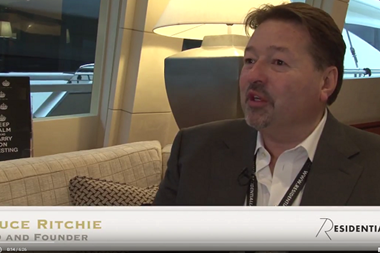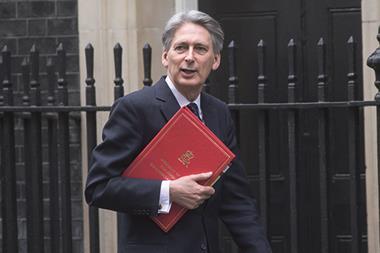When Philip Hammond failed to mention stamp duty in last week’s Autumn Statement, there were sighs of disappointment all round.

The industry had been clinging to the hope he would see sense and, for the Treasury’s sake as much as the housing industry’s, rethink his predecessor’s ill-conceived reforms. Unfortunately, its pleas fell on deaf ears and now we all continue to pay the price.
Don’t take my word for it. The changes brought in by George Osborne “without industry consultation, without knowing Brexit was going to occur and without a manifesto remit” are “counterproductive tax arrangements that reduce overall revenue and slow down the housing market” and have led to “a lose-lose situation”.
So say Residential Land’s Bruce Ritchie, Aitch Group’s Henry Smith and Mount Anvil’s Killian Hurley respectively - but these quotes could have come from any number of leading industry figures.
The former chancellor’s reforms were controversial in 2014, but as 2016 draws to a close - a year riven by political and economic uncertainty - they are starting to look downright alarming.
Hammond had the opportunity on 23 November to row back on at least some of Osborne’s policies when he gave his Autumn Statement to the Commons. Unfortunately, he instead kicked SDLT into the long grass.
We are launching Call Off Duty in a bid to make him change his mind.

We are not campaigning out of concern for rich people and their tax liabilities, but out of concern for the housing sector - and for the sake of the public finances. Put simply, Osborne’s reforms have stifled development and led to lower overall receipts for the Treasury.
The problem is particularly acute in the capital. The 10% rate on homes valued over £925,000 and 12% charge on houses worth upwards of £1.5m has had a chilling effect on the top of the market.
This does not only affect the rich, by the way - not when the average price of a property in London is more than £600,000 and fairly modest homes can easily top the £1m mark.
Putting the brakes on build-to-rent
More ominously, it puts off developers. If they can’t sell their larger, more expensive units, they won’t build them - and nor will they build the smaller, more affordable homes, for that matter, or submarket units for rent or shared ownership. The regions are not immune either. Osborne’s introduction of a 3% surcharge on additional homes is already putting the brakes on the build-to-rent sector.
This would all be bad enough, but you could understand why Hammond was sticking to his guns if he was making loads of dosh from the tax. He claims he is, but the day after the Autumn Statement, the Office for Budget Responsibility published research stating that receipts have been “notably weaker at the top end of the residential and commercial markets, particularly in London”.
This is your campaign
The Call Off Duty survey is live and waiting for your responses - Tell us what you want…
It adds that over the next five years, stamp duty receipts will be £9.5bn lower than forecast at the time of Osborne’s last Budget in March. That’s quite a chunk of change. Add to that the losses in revenue caused by the knock-on effect across the housing sector and the government’s obstinacy starts to look masochistic.
For the sake of the market, housing delivery, social mobility and the Treasury’s coffers, something needs to change. Over the coming weeks, we need your help to persuade Hammond to Call Off Duty. The case is there to be made - and make it we must.






























1 Readers' comment